Podcasting has become an increasingly popular medium for sharing valuable information and connecting with audiences in various industries. In the real estate industry, podcasting offers a unique opportunity to engage with potential clients, share insights, and establish yourself as an authority. However, simply creating a podcast is not enough. To truly maximize your reach and impact, you need to ensure that your podcast is available on all platforms where your target audience is likely to be. This article will provide you with step-by-step instructions on how to get your podcast on all platforms in the real estate industry.
Why it is important to get your podcast on all platforms
Getting your podcast on all platforms is crucial for reaching a wider audience and maximizing your podcast’s visibility. Different people prefer different podcast platforms, and by making your podcast available on all of them, you ensure that you have a presence wherever your potential listeners are looking. Moreover, being on all platforms increases your chances of being discovered by new listeners who may not have found you otherwise.
Additionally, being on all platforms enhances your credibility and professionalism. When potential listeners see that your podcast is available on all major platforms, they are more likely to perceive you as an established and trustworthy source of information in the real estate industry.
Researching and choosing the right podcast hosting platform
The first step in getting your podcast on all platforms is to choose the right podcast hosting platform. A podcast hosting platform is where your podcast episodes will be stored and distributed to various podcast directories and platforms. When selecting a hosting platform, consider factors such as pricing, storage space, analytics, ease of use, and integrations with podcast directories.
Some popular podcast hosting platforms to consider are Libsyn, Podbean, and Anchor. These platforms offer comprehensive features and easy integration with major podcast directories. Take the time to explore and compare different options to find the one that best suits your needs and budget.
Once you have chosen a podcast hosting platform, sign up for an account and familiarize yourself with the platform’s interface and features. This will make it easier for you to upload and manage your podcast episodes in the future.
Creating and recording high-quality episodes
The success of your podcast ultimately depends on the quality of your episodes. Before you start recording, it’s essential to plan your episodes carefully. Outline the topics you want to cover, determine the format of your podcast (interviews, solo episodes, panel discussions, etc.), and create a script or a detailed outline to guide your recording.
When it comes to recording your episodes, invest in good quality recording equipment. A decent microphone, headphones, and a quiet recording environment can make a significant difference in the overall sound quality of your podcast. Additionally, consider using audio editing software to enhance the sound and remove any background noise.
During the recording process, speak clearly and confidently. Engage with your audience by using a conversational tone and injecting your personality into your episodes. Remember to keep your episodes informative, entertaining, and relevant to the real estate industry.
Editing and optimizing your podcast episodes
Once you have recorded your episodes, it’s time to edit and optimize them for a seamless listening experience. Editing involves removing any mistakes, pauses, or irrelevant content, as well as adding any necessary music or sound effects. You can use professional audio editing software like Audacity or Adobe Audition to edit your episodes.
While editing, pay attention to the length of your episodes. Aim for a duration that is suitable for your target audience and the content you are providing. Long episodes can be overwhelming for listeners, while shorter episodes may not provide enough value. Strike a balance that keeps your audience engaged and wanting more.
Optimizing your podcast episodes involves adding metadata such as episode titles, descriptions, and tags. These elements help search engines and podcast directories categorize and recommend your podcast to potential listeners. Use relevant keywords in your titles and descriptions to improve your discoverability.
Creating podcast artwork and writing compelling descriptions
Visual appeal plays a significant role in attracting potential listeners to your podcast. Creating eye-catching podcast artwork is essential to make a strong first impression. Your artwork should be visually appealing, relevant to the real estate industry, and convey the essence of your podcast. Use high-quality images, bold typography, and vibrant colors to create a visually striking design.
In addition to artwork, compelling episode descriptions are crucial for attracting listeners. Your descriptions should provide a concise overview of what each episode covers, highlight the key takeaways, and entice potential listeners to click play. Use language that is engaging, informative, and reflects the tone of your podcast.
Submitting your podcast to major podcast directories and platforms
To get your podcast on all platforms, you need to submit it to major podcast directories and platforms. These directories act as search engines for podcasts, allowing users to discover and subscribe to new shows. Some popular podcast directories to consider are Apple Podcasts, Spotify, Google Podcasts, and Stitcher.
To submit your podcast, you typically need to provide information such as your podcast’s RSS feed, artwork, description, and category. Each directory may have specific requirements and guidelines, so make sure to read and follow them carefully. Once your podcast is submitted, it may take some time for it to be reviewed and approved by the directory.
Promoting your podcast on social media and other channels
Getting your podcast on all platforms is just the first step. To grow your audience and increase your podcast’s visibility, you need to actively promote it on various channels. Social media platforms like Facebook, Instagram, Twitter, and LinkedIn are excellent channels for promoting your podcast.
Create dedicated social media accounts for your podcast and regularly share episode updates, behind-the-scenes content, and engaging visuals. Encourage your listeners to share your episodes with their networks and engage with them by responding to comments and messages. Additionally, consider collaborating with other real estate industry influencers or appearing as a guest on other podcasts to expand your reach.
Tips for growing your podcast audience
Growing your podcast audience requires consistent effort and strategic tactics. Here are some tips to help you expand your listener base:
- Release new episodes regularly: Consistency is key in podcasting. Stick to a regular release schedule, whether it’s weekly, bi-weekly, or monthly, to keep your audience engaged and coming back for more.
- Encourage listener engagement: Create opportunities for your listeners to engage with you, such as through Q&A sessions, listener feedback, or contests. Respond to listener comments and messages promptly to build a sense of community.
- Cross-promote with other podcasts: Collaborate with other podcasters in the real estate industry to cross-promote each other’s shows. This can introduce your podcast to new audiences and help you gain credibility through association.
- Utilize SEO techniques: Optimize your podcast titles, descriptions, and episode content with relevant keywords to improve your search engine rankings and increase your discoverability.
- Seek guest opportunities: Actively seek opportunities to be a guest on other podcasts or media outlets in the real estate industry. This can expose you to new audiences and establish your authority in the field.
Monitoring and analyzing podcast performance
Once your podcast is available on all platforms, it’s crucial to monitor and analyze its performance regularly. This will help you understand your audience’s preferences, measure the effectiveness of your promotion efforts, and make informed decisions to improve your podcast.
Pay attention to metrics such as the number of downloads, listens, and subscribers, as well as audience demographics, listener retention, and engagement. Many podcast hosting platforms provide built-in analytics tools, or you can use third-party analytics services like Chartable or Podtrac.
Use the insights gained from your analytics to refine your content strategy, improve episode quality, and target your promotional efforts effectively. Experiment with different approaches, track the results, and adjust your strategy accordingly.
Conclusion
Getting your podcast on all platforms in the real estate industry is a powerful way to reach a wider audience, establish yourself as an authority, and grow your business. By following the step-by-step instructions outlined in this article, you will be well-equipped to create, optimize, promote, and monitor your podcast effectively. Remember, podcasting is an ongoing journey, so stay committed, continue to provide value, and consistently engage with your audience. Best of luck in your podcasting endeavors!









